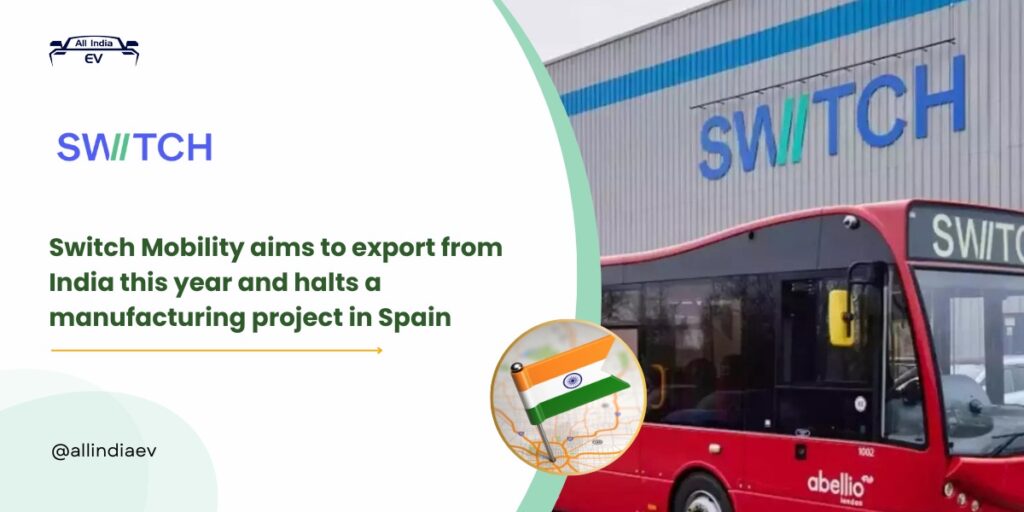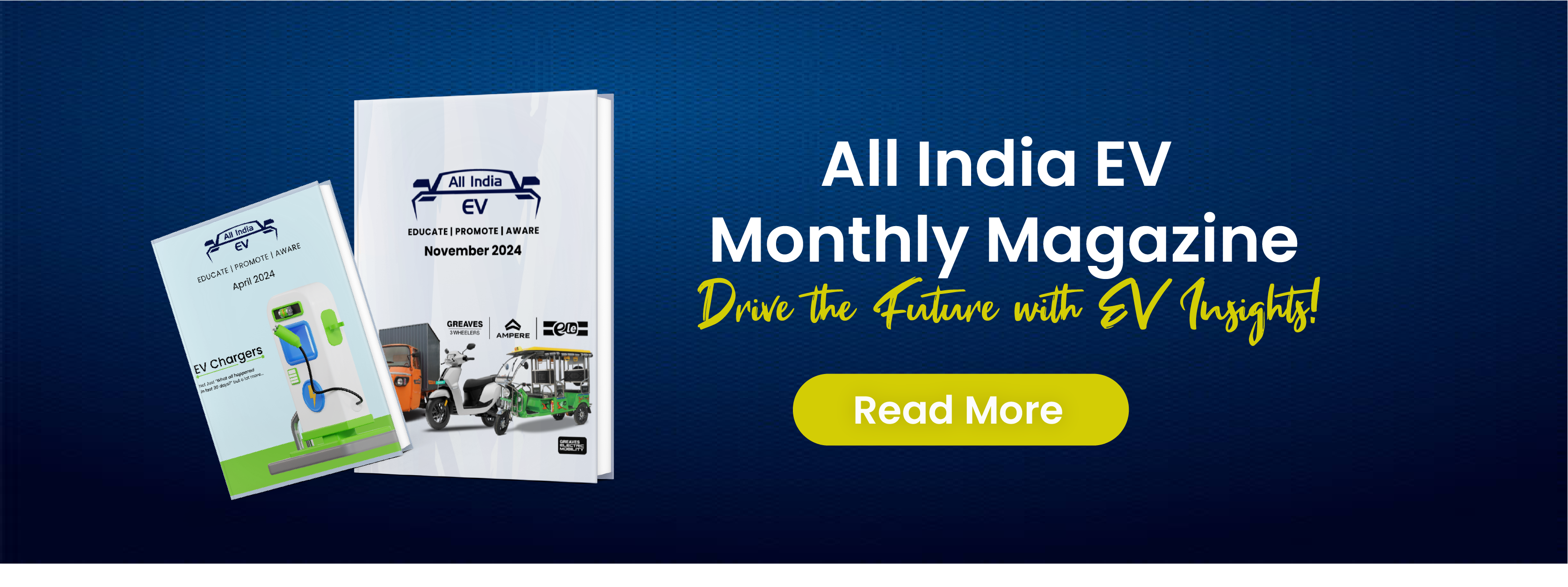
Switch Mobility suspends Spanish manufacturing project, plans exports from India this year
Switch Mobility, the electric bus and light commercial vehicle maker owned by Ashok Leyland, initially began setting up a bus and van plant in Valladolid, Spain, over two years ago. However, the project has been stalled as the company finds it more viable to produce the planned vehicles elsewhere.
“Right now, we are not going ahead with the Spanish bus factory,” said Mahesh Babu, CEO of Switch Mobility, in an interview. The planned €100 million investment in the Spanish factory is on hold, but the company’s plans for the Spanish electric bus market continue. Switch Mobility’s first bus, the e1, is expected to launch in Spain within the next 3-4 months.
“The e1 bus is going to be ready for the market by August, and we are delivering the first two buses to Benidorm (in Spain) by September,”
Babu added.
Following the initial deliveries, Switch Mobility plans to bid for electric bus tenders in Spain, where the market is estimated to demand around 400 buses. Until demand reaches a critical mass, the company will fulfil orders from its plants in the UK and India. Ashok Leyland’s plant in Ras Al Khaimah, UAE, may also be used for manufacturing. The land in Spain designated for the bus plant remains with Switch Mobility, and the company plans to build the factory once it sees an annual demand of approximately 150 buses in Europe.
This isn’t the only project Switch Mobility has paused. The company had planned an investment of up to INR 1000 crore for a new plant in India but has decided to maximize the use of existing Ashok Leyland facilities in Tamil Nadu’s Ennore and Hosur before setting up a new one.
“Investment should not drive the market; the market should drive investment. We have to create shareholder value and value at every place we are in,”
emphasized Babu.
This strategy will also help conserve cash, with Ashok Leyland injecting INR 1200 crore into Switch Mobility last November after talks with potential investors didn’t pan out.
Export Strategy
Switch Mobility also sees significant potential in markets outside Europe, including South East Asia, the Gulf Cooperation Council (GCC), and Africa. Nepal is set to be its first export market, where the IeV4 electric small commercial vehicle (eSCV) is being sent for trials. The company is banking on small electric trucks to increase volumes rapidly and support Ashok Leyland’s ambition to rank among the top 10 global commercial vehicle OEMs.
“We have a huge export potential because many countries don’t have the emission restrictions applicable to ICE vehicles. We believe we will play a vital role in these markets, both where Ashok Leyland is present and where it is not,”
Babu explained.
Switch Mobility is also considering left-hand drive (LHD) markets, given the eSCV’s adaptable architecture. With electrification gaining traction in the commercial vehicle industry, Babu anticipates new market segments to explore for sustainable growth. In India, Switch Mobility expects the eSCV market to reach between 4,000 and 6,000 units this year, having recently secured an order for 500 IeV4s from EV fleet operator Magenta Mobility, to be delivered within a year.
Content Credit: ET AUTO

